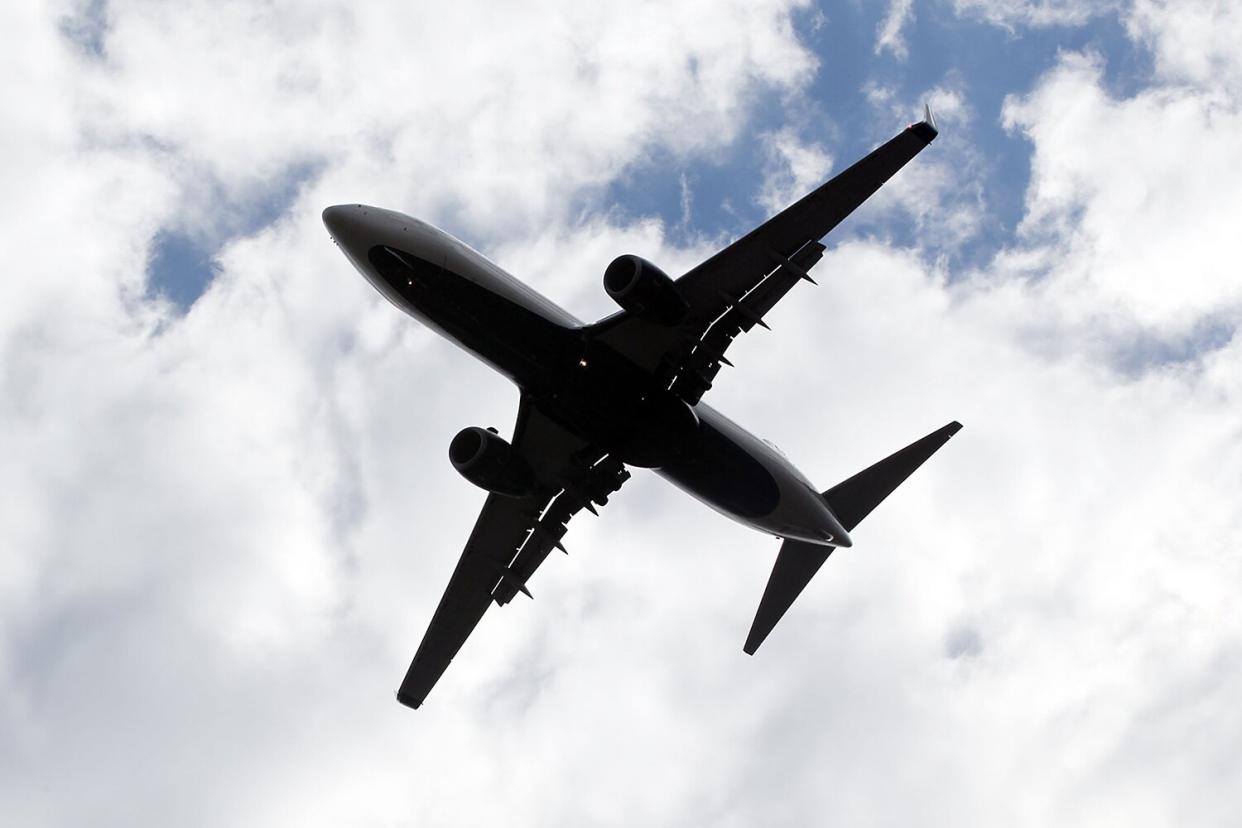AT&T and Verizon Will Delay 5G Near Some Airports After U.S. Airlines Said It Would Cause 'Catastrophic Disruption'

Bruce Bennett/Getty
AT&T and Verizon announced on Tuesday that they will delay the rollout of 5G near certain airports after executives from major U.S. airlines warned of a "catastrophic disruption" to travel and shipping due to the technology.
"As the nation's leading wireless provider, we have voluntarily decided to limit our 5G network around airports," a Verizon spokesperson told PEOPLE. "The Federal Aviation Administration (FAA) and our nation's airlines have not been able to fully resolve navigating 5G around airports, despite it being safe and fully operational in more than 40 other countries."
AT&T echoed the same frustrations in their own statement.
"At our sole discretion we have voluntarily agreed to temporarily defer turning on a limited number of towers around certain airport runways as we continue to work with the aviation industry and the FAA to provide further information about our 5G deployment, since they have not utilized the two years they've had to responsibly plan for this deployment," an AT&T spokesperson told PEOPLE.
RELATED: United Airlines CEO Says 3,000 Employees Have Covid, but Vaccine Mandate Has Saved Lives
The spokesperson added, "We are frustrated by the FAA's inability to do what nearly 40 countries have done, which is to safely deploy 5G technology without disrupting aviation services, and we urge it do so in a timely manner."
The announcement comes after the Biden Administration said it was "actively engaged" in conversations with the Federal Aviation Administration, Federal Communications Commission, wireless carriers, airlines and equipment manufacturers to help alleviate the disruptions from 5G, according to The Hill.
"We certainly understand what's at stake for both industries," White House Press Secretary Jen Psaki said on Tuesday of the airline and wireless industries, according to The Hill.
On Monday, Industry group Airlines for America cautioned against the introduction of 5G's C-Band from Verizon and AT&T on Wednesday, as it said it could interfere with devices that measure airplane altitude and aid pilots in taking off and landing during inclement weather.
"Immediate intervention is needed to avoid significant operational disruption to air passengers, shippers, supply chain and delivery of needed medical supplies," the letter from Airlines for America stated.
RELATED: Proof of COVID-19 Booster Required to Travel to France, Dine in Maui
"The ripple effects across both passenger and cargo operations, our workforce and the broader economy are simply incalculable," the group continued.
The letter, obtained by PEOPLE, was signed by the group board including CEOs of Alaska, American, Delta, United, Southwest, FedEx, and UPS and was sent to Transportation Secretary Pete Buttigieg and other government officials.
"Every one of the passenger and cargo carriers will be struggling to get people, shipments, planes and crews where they need to be," the CEOs said. "To be blunt, the nation's commerce will grind to a halt."
The letter notes that "huge swaths of the operating fleet that may need to be indefinitely grounded. In addition to the chaos caused domestically, this lack of usable widebody aircraft could potentially strand tens of thousands of Americans overseas."
RELATED: State Department Says Americans Should Make 'Contingency Plans' If Traveling Internationally
The FAA has approved an estimated 45 percent of the U.S. airliners to perform low-visibility landings at many of the airports where 5G will be deployed.
The FAA said it "will continue to ensure that the traveling public is safe as wireless companies deploy 5G."
The administration will "work with the aviation industry and wireless companies to try to limit 5G-related flight delays and cancellations."
Never miss a story — sign up for PEOPLE's free weekly newsletter to get the biggest news of the week delivered to your inbox every Friday.
AT&T and Verizon previously delayed the rollout of 5G by two weeks following a request from the Department of Transportation.
The possible interruption comes on the heels of flight cancellations and delays caused by winter storms and the highly transmissible omicron COVID variant over the holidays.

